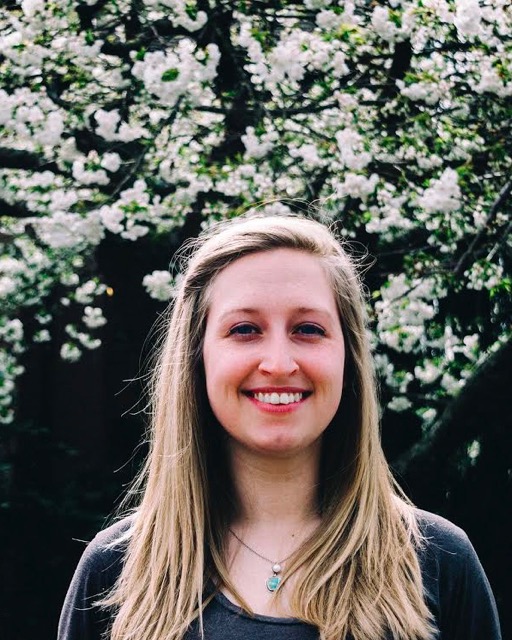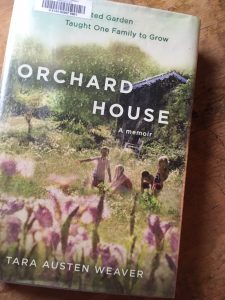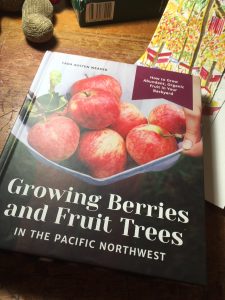264. Power Polinators Improve Your Yields | Rent Mason Bees | Rockstar Millennial Olivia Shangrow | Bothel, WA

Olivia Shangrow is an Awesome Rockstar Millennial and the biologist and operations specialist for Rent Mason Bees. She completed her bachelor of science degree in biology from the University of Washington. She’s passionate about teaching the public about wild bees and her research focuses on increasing the value of rural and urban habitats for native insects.
I can share information on the mason bee lifecycle, what to grow in your garden to support them, and the best ways to care for/host them in your backyard
We’re up north of Seattle in Bothel, we do some propagation in Oregon too!
We travel a lot but when we’re actually hands on in Washington
Tell us a little about yourself.
I’ve always been interested in bees my whole life, myself have been hearing the bees are struggling and our bee populations are down.
I just decided when I was finishing school I wanted to do more to help bees and that’s how I ended up running a program where I rent bees.
I have to back up a little what made you want to go to college and get a science degree and what about bees? Watching Bee movie?
I think I’ve always loved all types of animals!
I can’t remember when I first decided that I thought bees were awesome!
I had heard of the honeybee before but I ended up I took a class in between high school and college where I learned about the Mason bee.
That opened up my world to something I never knew existed. When I went to college I went back and forth between different programs, I finally settled on biology that coupled my love for nature but would help me get a job in the future. I wanted something that was applicable and hands-on
Anytime I got to do any kind of independent focus where I got to pick what I was studying I always chose bees
When I was senior research project
went out to one of the
power pollinator patches
stuck my head in big bushes of flowers and counting the bees
Identifying
- honeybees
- bumblebees
- anything I could find
had so much fun with all of those projects it landed after I was in college I ended up with a job in bees.
I always say you never know what you are going to learn in college what jobs that you will learn about, I always tell them take any job you can to travel. I got to take a class in Olympia in Washington where we studied starfish and all sorts of cool sea anenomes. I love how you picked places to learn about bees. I don’t actually know anything about mason bees other then their a native bee?
So sure, they’re a native bee found in the US
there are a lot in the pacific northwest, their range is pretty broad.
a bunch of different species
75 different kinds of bees around the area and we focus on one in particular
blue orchard mason bee they are much different from honey bees!
They’re what they call a solitary bee
there’s no queen bee
- don’t live in a hive
- don’t make honey
- all females lay their own eggs
Which makes them non-aggressive so you never have to wry about getting stung!
super pollinators and visit up to 2000 flowers everyday
she’s gonna be flying around visiting fruit trees bushes
pollinating
Really important for the overall health of our ecosystem because they are pollinating your backyard!
So why renting them? What’s that all about.
And a little about their lifecycle the reason why don’t make honey
hang out in hive eating honey reserves
instead the mason bees are going to hibernate inside their own cocoons in the winter time
How their lifecycle works
- they’re hybrinating in winter
- hatch out of their cocoons
- mid to late march
- males and females
completing their nesting activity to lay the next generation of bees
looking for little holes in the backyard to lay eggs
- woodpecker hole
- hollow stem of bush
- in between siding of your house
They’re gonna use those small holes that’s what they’re doing in the springtime while doing pollination work laying eggs for next generation
once they’ve done that process they’re done flying around, their life cycle is over
adult bees
so these bees have a lifecycle of one year but we only see them flying around for 7-8 weeks as adult bees
Mason Bees Renting Program
- provide nesting material
- adult bee cocoons
- host them for springtime
- they get pollination
- watch the bees flying around
- some of the bees will return to nesting block
at end of season
original population is over
What they are giving us back is the next generation of bees
We take care of them for the rest of the year
There is a little bit winter maintenance just like a honeybee hive
What we do during the fall
- take the nesting material out
- scrape cocoons out
- wash them they’re waterproof
- bathe our bee cocoons
- wash all the nesting material to make sure there aren’t any pests or predators that could be harming the bee populations
- put them in a walk-in refrigerator to simulate hibernation process
Wow isn’t this fascinating? So do you find you have more success then leaving them out in nature?
We do!
Because we are propagating a large population of bees there are certainthings that can hinder their development
- pollen mites
- chalk brood fungus
can be really harmful
So of course there are bees out in nature who don’t get washed that are staying dormant in a tree in a backyard
offer to more farmers as an alternative pollinator to alleviate the stress in bee populations
Do they go down in the almond farms in California?
so we actually just starting to pollinate farms with the almonds
Our bees are really great for that
almonds
a little bit heartier
can fly at 55º F!
The don’t mind it when it as bit windy or rainy so we have seen great success in the almond orchards because often honeybees wont leave their hives in that temperature.
So we’ve had really great success and farmers are seeing an increase in crop yield because these bees don’t mind the cooler temperatures.
One of the other cool things about the program
We’re not putting a bunch of bees in one spot so because we have renters all over the country putting bee kits, not all of the bees are going to return.
Some are going to naturally disperse and lay their eggs so over time we are seeing native bees being able to repopulate
particularly urban areas where our green spaces are getting smaller and we’re building construction so we’re trying to bring them back to those areas
not only are people getting the pollination
apple tree blueberry bushes
native plants that are growing just in people’s yard
That means that those plants can
- grow taller
- grow larger
- healthier
Which means they are going to be filtering our air and water better
crux at the health of our ecosystems! Really really important for that. They do a lot more then enable us to have fruits and vegetables
doing a lot of good stuff in people’s backyards!
I love that if you have a flower garden you don’t realize how much your garden is going to bloom and I’ve had lots of guests talk about bees made their vegetables thrive so much and when we were at the Brooklyn Grange the pollinator border was just so pretty and cool! I know it was there to encourage pollination and beneficials.
so how does it work? Do you ship them?
People sign up for their rental kit
what we do is we package
- nesting block
- house to hang in the backyard
- one inch pvc pipe with a cap on the end
rent a kit everything is included
Also we work with a leaf cutter bees
you can sign up for one or both
Mason bees are the springtime in April and May
leaf cutter bees fly in July and August
vegetable garden pollination
- tomatoes
- cucumbers
- squash
anything that is going to be blooming in the summertime
host them for the season
instructions
youtube videos
everything to be successful
I send you an email
included with every package is a return label
pack it up in the box
tape it on the front
drop it off at the Post Office
Goes to Seattle where we do all of the cleaning of the bees in the fall
really straight forward
relatively inexpensive we charge $50 and that’s everything you get for a season.
That’s a great deal because compared to honeybees, let me tell you, we’ve invested a lot of money in honeybees here and again we’re without any bees. They were doing good for a while and then IDK what happened. We bought local hives, got hives from Washington and other Montana places and IDK…
one of our biggest goals is to grow the population of bees because we want to work with more farmers
even though using mason bees in ag industry is a relatively new industry
new thing
because you need so many fewer bees to pollinate the same amount of acerage.
For instance if you have an acre or apples you may need 1-2 honeybee hives that would be upwards of 50-60000 honeybees!
Our mason bees are such efficient pollinators you really only need about 400 females to do the same pollination work.
So what we are finding because you have to use so many fewer bees
The farmer’s we are working with have to agree to use less chemicals during the time the bees are flying. They are more sensitive to those chemicals if you only have 400 you don’t want to wipe out your pollinator so we’re actually starting to see fewer chemicals used on these farms because
it’s worth it to the farmers!
- they’er getting an increase yield
- it’s less work
- don’t have to rent honeybee hives
So we are seeing some systemic changes in the portion of the agriculture industry that were working with!
What else can I ask? Is it going to be kind of like a franchise? how did you start this? Did you just start working for this company? How did it start?
It started about 10 years ago, around 2008. It was just this little business this woman started in her garage
She was going around the area teaching mason bee classes
I think I thought the class was about honey bees when I showed up I learned all about this idea of mason bees
it started catching on
she wanted to raise more bees
I don’t have to worry about getting stung
so many perks to the program
Eventually she needed to charge a little bit of money to provide the supply
so many people wanted to participate
She ended up selling the business to a man named James Watts from Watts Solitary Bees
His family has been in the business of large scale pollination and working with apple and almond farmers and he thought this idea could go somewhere because it’s so accessible and easy for people who want to do something good for the environment and good for bees and through one of those projects I was introduced to Jim
Fast forward a few years later this has been my full time job and I learn as I go and we are trying to figure out how to make this as accessible as possible
do a lot of local events in Washington State
go to farmer markets
different conservations
Were do in person handout events
I show up with the truck and the bee houses and I answer everyone’s questions.
local scale
recently we started mailing bees
So we’re just trying to figuring out how to get this in people’s backyards
people can find out more about your program
platforms like the Organic Gardener Podcast
We’ve got the bees we just need the backyards
Cool when can people order them? You can’t ship us any now. What about people in Florida or Texas?
I have a big range of ship dates. You can go on right now. It’s open for reservations
RentMasonBees.com
mason bees or leaf cuter or both
We have a pollinator package as well
different ship dates
We start shipping in early feb
places where it warms up sooner
Like down in California people get them in early February.
all the way through most of April
colder climates when it takes longer to warm up later in the season. It’s a good time to put them out when temp during the day are around 55ºF. It can still get cold at night. We are also looking for available sources of pollen, if you have fruit trees in your garden, you will put the bees out when you just start to see flowers open.
If you have other plants in your yard, for example the big leaf maple tree
pacific Northwest
Those bees provide loads of pollen to mason bees
when is that big food source available for the bees.
February through April
The leaf cutter bees are a summertime pollinator
send those bees out in June.
Those don’t bite either? Or sting?
no they’re totally docile gentle
short time period, they are interested in visiting flowers and laying eggs
not interested in stinging you at all
lab in Utah
ovipositor
Mason bee even though she does have a stinger which is called her ovipositor that’s what she uses to lay eggs
doesn’t want to lose her
doesn’t contain any venom
wasp or honeybee is injecting a bit of venom
If you did get bit and that would only happen if you squished her in your hands and it would feel like a mosquito bite
I just keep thinking these would be great in schools with kids.
absolutely!
We’re seeing lots more schools starting community gardens! Teaching kids early about pollination. I went to a 3rd grade classroom and I was just floored to see how much the kids knew about bees and pollinators!
It’s really fun in the beginning of the seasons when the little bees are starting to emerge from their cocoons because you can actually hold a cocoon in your hands and see the little bees using it’s mandibles to get out!
really fun for students
to get up close and personal with these bees because they are not worried about getting stung
stand in front of the nesting block
people who participate on the program get really excited and look forward to getting their bees each spring.

“drilled much harder to clean that’s why I don’t recommend using drilled blocks”
A few of the Seed Swap Fairs I’ve been to there have been mason bee projects and people make little holes out of rolled up newspaper etc so is that a good thing for people to do for the bees that don’t go back in the nest and get returned to you? It seems like they are wrapping up a roll of newspaper in a tube, or I saw some with wooden boxes with holes drilled in them.
So it is good to provide nesting material for your local populations
it is important to remember if you are going to do that a little bit of winter time management can go a long way towards your success!
pollen mites
if you are using the same messy material year after year
if pollen mite populations get too large
they eat pollen so they are found on flowers
What will happen because in nature the bee is not using the same hole
they find woodpecker holes
finding new branches
when we provide nesting material for their bees they say hey this
- smells like a bee
- it’s the right size and shape
- this is great place for me to get my eggs!
if the populations is too large
When she is laying her eggs in the hole, she leaves a little bit of pollen for the egg to eat once it hatches into a larvae!
A larvae doesn’t have wings, food, completely reliant on food left by its mother bee
If the pollen mite populations get too large they are gonna eat that pollen source and the bee will have nothing to eat and it won’t survive
When you are going to provide nesting material you really want to make sure you clean it every year so those pollen mite populations don’t get too large!
That’s why we have a whole Mason Bee Nest Cleaning process of
- washing the bees to take off any mites
- Take all of our nesting nesting material apart and run it over a flame to kill any microscopic organisms that might have gotten in there
Where do you put the bees? In the fridge? I’m fasciniated? Where are the bees when you are cleaning them out?
Yeah! You’ll want to take the bees, whether you have tubes or blocks, take them out!
A flathead screwdriver can work really well if you just have wooden blocks
drilled much harder to clean that’s why I don’t recommend using drilled blocks
local plant nursery probably has lots of different kinds of nesting material
Another reason we started renting bees is a lot of people don’t always want bee cocoons in their fridge in the winter time!
- Scrape the bees out of the nesting material
- we wash them in a water bleach mixture
- then we soak them in water for 10-15 minutes.
- use new tubes every year
- brush off and clean wooden nesting material
once they’re washed
they’re dried so they don’t mold over the wintertime. We just use large tupperware bins and put them in our walk in refrigerator
I actually have some youtube videos of the whole process of washing bees
This is why I love rockstar millennials like you because look at you how cool is that! You’ve taught us so much about bees and mason bees and compelling reasons to have bees as pollinators. We didn’t see very many bees at our place last summer at all!
If you have a business to you have any advice for our listeners about how to sell extra produce or get started in the industry?
I would just say, it’s been difficult at times, what we’re doing is something that hasn’t been done before!
I’m just figuring it out as we go, the one thing that has really helped me, I feel really passionate about what were doing.
I am 100% behind our program!
We’re having a lot of impact
anyone can do it
anyone can host bees in the backyard
We try to give you all of the confidence and instructions to be successful in this!
It’s just so encouraging to see how many people are excited to learn about bees! and want to do their part!
I’m one of them! This has been exciting, and I had a couple of listeners who said they wanted to learn about mason bees! Bobby Bradley and Susan Zha Mad Dog!x
Final question –
if there was one change you would like to see to create a greener world what would it be? For example is there a charity or organization your passionate about or a project you would like to see put into action. What do you feel is the most crucial issue facing our planet in regards to the environment either in your local area or on a national or global scale?
I would just love to see our green spaces growing, I think they could have such a collosal impact on our eco system.
When people are just little aware of biodiversity
You’ll be attracting bees and pollinators and birds and other native animals.
Here in Seattle we’re seeing so much construction all the time so there are a lot of cool companies out there that are building so much but
are also putting things to help our local ecosystems that’s where we fit in a little bit too
- putting more bees in backyards
- creating more green spaces
- grow more different kinds of plants just to increase biodiversity as a whole
- grow more types


this is like a perfect episode, because I just interviewed Tara Austen Weaver who just wrote a book about
Growing Berries and Fruit Trees in the Pacific Northwest: How to Grow Abundant, Organic Fruit in Your Backyard
Plus a lot of my listeners are always talking about time is tough and this is such a more efficient and effective way to have bees without a lot of the cost and work!
How do we connect with you?
rentmasonbees.com
We’ve got lots of different options for different kinds of kits you can reserve
I am always available
contacted info@rentmasonbees
rentmasonbees
and don’t forget if you need help getting started check out our new
Free Garden Course.com
Free Organic Garden Course
We’d love if you’d join Organic Gardener Podcast Facebook Community!
The Organic Gardener Podcast is a participant in the Amazon Services LLC Associates Program, an affiliate advertising program designed to provide a means for sites to earn advertising fees by advertising and linking to amazon.com
If you like what you heard on the Organic Gardener Podcast we’d love it if you’d give us review and hopefully a 5 star rating on iTunes so other gardeners can find us and listen to. Just click on the link here.




